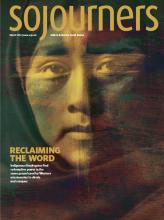AS AN EVANGELICAL pastor of a multiethnic church in New York City, I often find myself at the intersection of lively discussions about race. These conversations almost inevitably lead to a familiar question: What does the church do now? Maybe stated another way, “How do we work toward the dream of the beloved community?” This is why I find Edward Gilbreath’s Birmingham Revolution: Martin Luther King Jr.’s Epic Challenge to the Church to be a timely and necessary read.
While many books have been written on Dr. King and civil rights, Birmingham Revolution places King’s faith at the foreground of the writing. This is an important distinctive as King has often been co-opted, by conservative and liberal agendas alike. Yet history cannot deny that prayerful action, and a gospel that took seriously the social dimensions of human life, were at the very heart of King’s theology.
Birmingham Revolution hones in on the year 1963—a time when the Southern Christian Leadership Conference took the civil rights efforts into the bowels of structural racism. Brown vs. Board of Education had provided an important Supreme Court victory in 1954, but many forms of local resistance to desegregation prevailed in the South.
To compound the drama, many advocates in Alabama, both black and white, believed further progress should happen through legal means. They had a misplaced confidence that local structures would uphold federal law, despite the continued presence of the KKK and other such groups. Gilbreath explains Birmingham’s defining moment not only in confronting segregation, but also in challenging the subtler, unwittingly complicit voice of the moderate.
Read the Full Article
